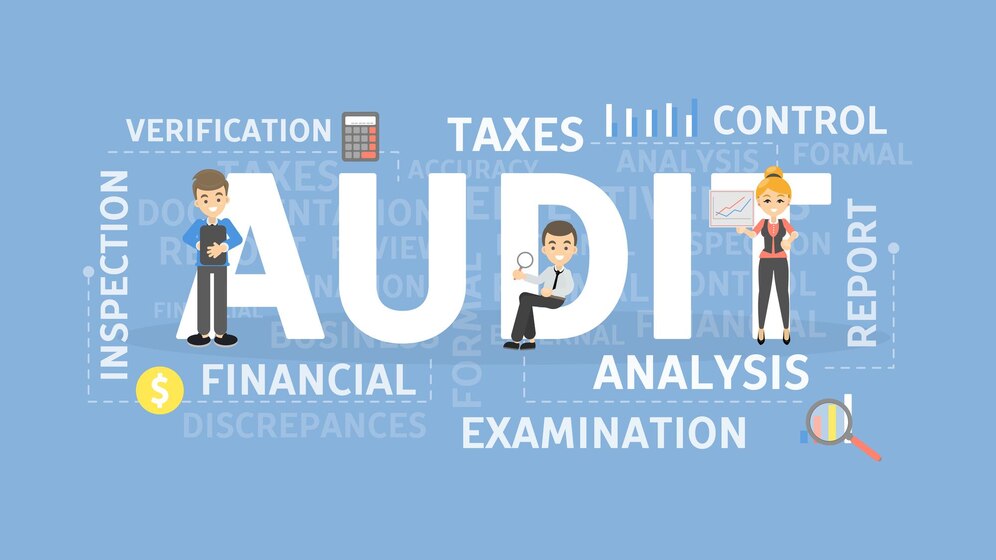Key Takeaways
- Internal audits extensively evaluate an organization’s risk management, internal controls, and compliance with regulations.
- Certified internal auditors, recognized by bodies like the IIA, conduct comprehensive audits and offer significant insights.
- Internal audit reports summarize audit findings and provide actionable recommendations to improve governance and risk management.
- Businesses are generally advised against conducting their own GST internal audits due to potential conflicts of interest and lack of objectivity.
- External auditors, such as Chartered Accountants or tax auditors, typically conduct GST internal audits to ensure compliance and minimize risks of penalties.
Scope of Internal Audit
An internal audit is an extensive evaluation of the risk management systems, internal controls, financial operations, and compliance with relevant laws and regulations of an organization. Internal auditors evaluate how well and efficiently business operations run in order to ensure the accuracy and dependability of financial information. This includes ensuring the accuracy of financial reports, detecting and avoiding fraud, and protecting the company’s assets. Internal auditors contribute to an organization’s overall operational efficiency and governance.
Internal auditors play an important role in finding opportunities for improvement and ensuring that the organization follows best practices and legal obligations. However, for specialized audits such as GST audits, the roles and responsibilities of internal auditors and GST auditors must be explicitly specified to avoid role conflicts.
Internal Audit Certification Process
The internal audit certification process includes numerous essential components that ensure the audit is thorough and accurate. First, the internal auditor must plan the audit by studying the company environment, setting objectives, and deciding on the audit scope. They then gather and analyze data, using a variety of auditing techniques and technology to evaluate the company’s financial records and internal controls. After gathering adequate data, the auditor forms an opinion on the adequacy of internal controls and compliance with regulations. Finally, the auditor creates an audit report that includes their findings and recommendations for improvement.
Individuals who want to become qualified internal auditors frequently seek certification from recognized professional bodies, such as the Institute of Internal Auditors (IIA). These qualifications demonstrate the auditor’s knowledge and dedication to maintaining high auditing standards. Certified internal auditors are better able to conduct comprehensive audits and provide significant insights to their firms.
Internal Audit Report Overview

An internal audit report is a formal document that summarizes the results of an internal audit. It contains an executive summary that describes the scope of the audit, the methodology employed, and the main findings. The report identifies areas of concern, such as deficiencies in internal controls, noncompliance with legislation, and instances of inefficiency or fraud. Furthermore, it makes suggestions for corrective actions and improvements.
The internal audit report is delivered to the company’s management and audit committee, and it serves as a key decision-making tool while also improving the organization’s governance and risk management processes. It is critical that the report be clear, simple, and actionable, allowing the organization to swiftly resolve any detected issues.
Can businesses do their own GST internal audits?
Businesses can conduct their own GST internal audits, although this is generally not encouraged due to inherent conflicts of interest and a lack of objectivity. Internal auditors within the company may be under pressure to overlook problems or may lack the particular knowledge needed to conduct a thorough GST audit. An external GST auditor, who provides GST audit services, brings an unbiased perspective and knowledge of GST legislation, resulting in a more accurate and complete audit.
While self-audits are useful for frequent compliance checks, hiring an independent auditor for GST audits is recommended to ensure transparency and compliance with tax rules. This helps to maintain the credibility of the audit findings and decreases the possibility of errors and penalties.

Who Conducts GST Internal Audits?
A GST internal audit is normally carried out by an external auditor with expertise in GST legislation and regulations. These auditors are typically certified professionals, such as Chartered Accountants (CAs), Cost Accountants, or tax auditors, who specialize in tax auditing. They are in charge of analyzing the company’s GST records, validating the accuracy of tax filings, and guaranteeing compliance with GST requirements.
💡If you want to pay your GST with Credit Card, then download Pice Business Payment App. Pice is the one stop app for all paying all your business expenses.
Businesses that hire an external auditor can benefit from an objective examination of their GST practices, lowering the risk of errors and potential penalties. The external auditor, also referred to as the GST auditor, ensures that the audit client receives a thorough and objective audit report.
Frequency of GST Internal Audits
The frequency of GST internal audits varies according to the size and complexity of the firm, as well as statutory requirements. In general, a yearly GST audit is suggested to verify continued compliance with tax rules, as well as to discover and correct any anomalies as soon as possible. Businesses with more complicated operations or that are experiencing substantial changes may benefit from more regular audits, such as semi-annual or quarterly evaluations.
Regular GST audits assist in maintaining accurate tax records, improving compliance, and lowering the risk of financial penalties and reputational damage. Adhering to the audit limit established by regulatory authorities ensures that businesses meet their legal obligations and maintain good standing with tax authorities.
To recap, while internal auditors are vital in examining and improving a company’s internal controls and processes, they should not perform GST audits concurrently owing to a potential conflict of interest. Engaging competent GST auditors for GST audit services ensures a thorough and objective examination of GST compliance, which benefits businesses by lowering the risk of penalties.
FAQs
Who can conduct a GST audit?
A GST audit can be conducted by a qualified Chartered Accountant (CA) or a Cost and Management Accountant (CMA) who is appointed by the taxpayer. These professionals must have a valid certificate of practice and should not have any conflicts of interest with the entity being audited. Their role is to ensure that the GST records are accurate and comply with GST laws and regulations.
Can the statutory auditor be a GST auditor of the same entity?
Yes, the statutory auditor can also be the GST auditor of the same entity. However, it is generally recommended to have different auditors for statutory and GST audits to ensure independence and avoid any potential conflicts of interest. This separation helps maintain the objectivity and integrity of both audits.
Who cannot be an internal auditor?
Individuals who are employees or directors of the company cannot serve as internal auditors due to potential conflicts of interest. Additionally, anyone who has a direct or indirect financial interest in the company or is involved in its day-to-day operations is disqualified from being an internal auditor. This ensures the auditor’s independence and objectivity.
Can a non-CA be an internal auditor?
Yes, a non-CA can be an internal auditor. While Chartered Accountants (CAs) are often preferred due to their expertise in auditing and financial regulations, other professionals with relevant qualifications and experience, such as Cost Accountants, Certified Internal Auditors (CIAs), or those with significant auditing experience, can also perform internal audits. The key requirement is a thorough understanding of auditing principles and the business environment.
Who is eligible for internal audit?
Individuals eligible for internal audits typically include Chartered Accountants (CAs), Cost Accountants, Certified Internal Auditors (CIAs), and professionals with relevant experience in auditing and finance. They must possess strong analytical skills, a deep understanding of internal controls and risk management, and the ability to provide independent and objective assessments. Certification from recognized professional bodies enhances their credibility and effectiveness.
What is the qualification in internal audit?
The primary qualifications for internal audit include certifications such as Certified Internal Auditor (CIA) from the Institute of Internal Auditors (IIA), Chartered Accountant (CA) from the Institute of Chartered Accountants of India (ICAI), and Cost Accountant (CMA) from the Institute of Cost Accountants of India. These certifications require passing rigorous exams and meeting experience requirements. Additionally, strong analytical skills, knowledge of internal controls, and continuous professional development are essential for internal auditors.








